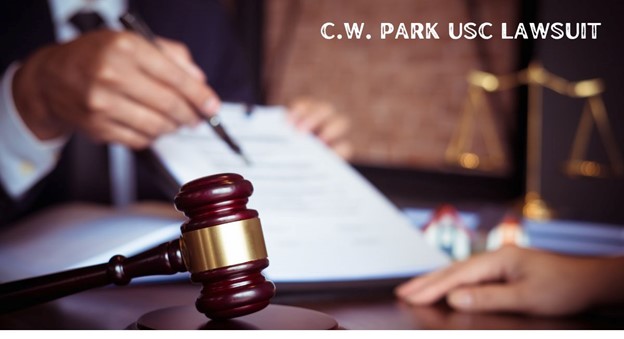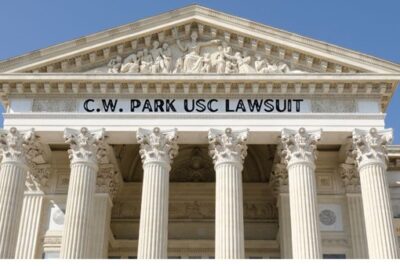The C.W. Park USC lawsuit highlights an ongoing problem in colleges and universities. Sexual harassment and holding people accountable are serious issues.
The case received a lot of attention because it involved serious claims. At the center of the legal battle were seven female graduate students. They accused Professor C.W. Park of sexual harassment and retaliation. The allegations spanned almost ten years, from 2006 to 2015.
This shook the University of Southern California (USC). It raised bigger questions about power differences, how institutions respond, and protecting students. When we talk about bad things happening at schools, we need to fix them quickly. The lawsuit against USC shows this. It is very important to stop sexual harassment at universities. If we can do this, it will help in many ways. Not only will it keep schools safe from lawsuits, but it will also make things better for students and teachers.
Learning About the Claims: What Are the Charges?
The claims against Professor C.W. Park describe a worrying situation involving misuse of authority and mistreatment within the academic world. Seven female graduate students accused Park of different forms of unwanted sexual behavior. This included undesirable advances, inappropriate remarks, coercion, and intimidation. The charges cover a long time period, suggesting a pattern of conduct that went unnoticed for many years. The seriousness of these accusations highlights the urgent need for a complete investigation and accountability measures by the university.
When bad things happen, many people get hurt.
The C.W. Park USC lawsuit affected more than just those involved. For the victims, suffering harassment was terrible. But dealing with USC’s complex rules made it even worse. The lawsuit showed that USC’s policies failed to help survivors. This case raised big questions about how schools support victims. It also shook up the whole academic world. People started asking for changes to make schools safer and fairer for students and teachers.
Facing the Challenges C.W. Park USC Lawsuit
The recent C.W. Park USC lawsuit highlighted the difficulties in dealing with sexual harassment at universities. Even with more awareness and efforts to stop it, many schools still struggle. People often don’t report their experiences. Survivors may not get enough support. Universities may not handle cases transparently. The power differences in academia make it hard for people to speak up. They fear retaliation and damage to their careers. Solving these issues requires multiple steps. Policies must focus on supporting survivors. Prevention strategies are crucial. There must be strong accountability measures.
Understanding How Schools Deal With Problems
Looking at the C.W. Park lawsuit against USC teaches us important things. USC settled with the people suing them. But this case shows universities need to change their rules for these situations. Being open, acting fast, and treating everyone fairly are key. Universities must train teachers, staff, and students. They need to learn about respect, consent, and being responsible. Doing this helps create a good environment for everyone.
After the USC Lawsuit
The C.W. Park USC case highlighted serious issues in universities. Now, there is a strong need to make real changes. Schools must strengthen their rules and processes for dealing with sexual harassment. They should focus on keeping students and faculty safe. This means building an environment of responsibility. Universities should provide good support services for survivors. They must also address power imbalances in academic spaces. By directly confronting these problems and making systemic changes, universities can create safer, more inclusive places. In these environments, all members can feel comfortable and succeed.
Dealing With Troubles
The C.W. Park USC lawsuit shows the many challenges of dealing with sexual harassment at universities. Even though more people are aware and speaking out, schools still struggle with not enough reports, lack of support, and a culture that allows misconduct. The power difference between teachers and students makes it hard to report issues. Students fear payback and damage to their education careers. These barriers make it difficult to resolve harassment cases.
Must Read: Wave Of Happy: The Power of Happiness in Daily Life

Moving Forward in the Right Direction
The way the University of Southern California (USC) handled the C.W. Park lawsuit provides important lessons. Colleges must put the wellbeing of survivors first. They need to be open and honest. They must also hold people accountable for bad behavior. This requires training programs to teach people what is right and wrong. Preventing issues before they happen is important, too. Universities cannot accept harassment or revenge of any kind. By listening to survivors and making changes, colleges can create safe spaces. Everyone should feel comfortable and respected without worrying about being taken advantage of or treated unfairly.
Dealing With Bad Behavior
Atmosphere of Belief and Regard
Proper actions to handle inappropriate sexual conduct help develop a setting based on belief and treating people right. By caring about everyone’s well-being, schools can create an environment where folks feel secure to speak up, ask for help, and take part in academic discussions without worries about payback or unfair treatment.
Performance and Retention
Good grades and staying in school are vital. Creating a nice learning space is key. Tackling sexual harassment and making things fair will help. Students can focus better when feeling valued and included. They get better marks and want to keep learning. Universities win when students succeed and stick around.
Attracting and Retaining Talent
A university’s image for supporting a secure and courteous setting can greatly impact its power to draw in and keep skilled people. Potential students and teachers are progressively examining universities’ dedication to tackling inappropriate behavior issues and preferring institutions that actively work towards creating fair and inclusive spaces.
Conclusion
The C.W. Park USC lawsuit serves as a wake-up call. It highlights the widespread problem of sexual harassment in universities. It shows the need to hold schools responsible for how they deal with misconduct. The case reveals that structures of power and privilege allow harassment to continue. The academic community now has a chance to make real changes. They can affirm their commitment to justice, equity, and dignity for everyone. Only by working together and staying determined can they create a future. In that future, every member of the academic community feels safe, valued, and empowered.







Leave a Reply